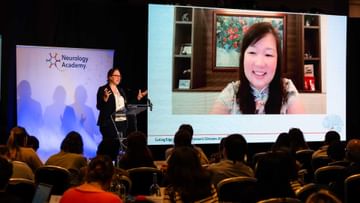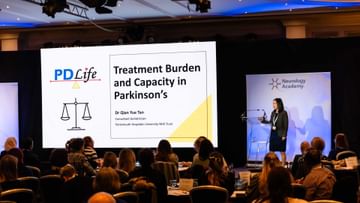Knowing our own business: Groundwork for Older Adults Parkinson's Service
by Dr Kate Scott In Wellington, New Zealand, our Older Adult service runs three Parkinson's clinics. In choosing an improvement project, the author reflected that she needed to clarify some basic information before any other improvement was planned:
In Wellington, New Zealand, our Older Adult service runs three Parkinson's clinics. In choosing an improvement project, the author reflected that she needed to clarify some basic information before any other improvement was planned: The intended audience is all those who provide Parkinson's care within the catchment. It became apparent that no one delivering Parkinson's-related care had a clear and detailed appreciation of all the services available, prior to the Map. Two addenda to this project will be a version for patients/ carers; and to convert the Map to a wholly digital form with hyperlinks to all referral processes.Creation of the Map required much consultation and this too had ripple effects:
The intended audience is all those who provide Parkinson's care within the catchment. It became apparent that no one delivering Parkinson's-related care had a clear and detailed appreciation of all the services available, prior to the Map. Two addenda to this project will be a version for patients/ carers; and to convert the Map to a wholly digital form with hyperlinks to all referral processes.Creation of the Map required much consultation and this too had ripple effects:
 In Wellington, New Zealand, our Older Adult service runs three Parkinson's clinics. In choosing an improvement project, the author reflected that she needed to clarify some basic information before any other improvement was planned:
In Wellington, New Zealand, our Older Adult service runs three Parkinson's clinics. In choosing an improvement project, the author reflected that she needed to clarify some basic information before any other improvement was planned:- Who the patients are
- What they want
- How the clinics fit in with the other services available for Parkinson's patients.
- We now know how many patients, their age range, what stage and type of Parkinson's they have, and the referral patterns in our service.
- We now know from which suburbs, medical centres and GPs our patients come.
- We know see the differences and similarities between the two clinic populations.
- Clearly defining our service’s role in contrast to, and to complement that of, Neurology
- The need for our involvement in the palliative stage for those in care homes
- Getting local figures to show what population extrapolations suggest: we are missing a large proportion of patients who should be under our care
- How and where to focus education into primary care.
 The intended audience is all those who provide Parkinson's care within the catchment. It became apparent that no one delivering Parkinson's-related care had a clear and detailed appreciation of all the services available, prior to the Map. Two addenda to this project will be a version for patients/ carers; and to convert the Map to a wholly digital form with hyperlinks to all referral processes.Creation of the Map required much consultation and this too had ripple effects:
The intended audience is all those who provide Parkinson's care within the catchment. It became apparent that no one delivering Parkinson's-related care had a clear and detailed appreciation of all the services available, prior to the Map. Two addenda to this project will be a version for patients/ carers; and to convert the Map to a wholly digital form with hyperlinks to all referral processes.Creation of the Map required much consultation and this too had ripple effects:- Consultation with the Neurology service prompted a neurologist and specialist nurse to set up a local Apomine service (previously there was none)
- Consultation with the Psychiatry service prompted a psychogeriatrician to further plans for a Clozapine service for older adults (currently there is none)
- Consultation with allied health therapists and geriatricians prompted our service to start offering a “once-over” by physiotherapy and speech therapy to all new patients presenting to any service.
- Relationships and understandings were significantly strengthened
- Referral pathways were clarified
- A Parkinson's Clinical Pathway for our catchment is now planned
Related articles
'The things you can't get from the books'
Parkinson's Academy, our original and longest running Academy, houses 20 years of inspirational projects, resources, and evidence for improving outcomes for people with Parkinson's. Led by co-founder and educational director Dr Peter Fletcher, the Academy has a truly collegiate feel and prides itself on delivering 'the things you can't get from books' - a practical learning model which inspires all Neurology Academy courses.


